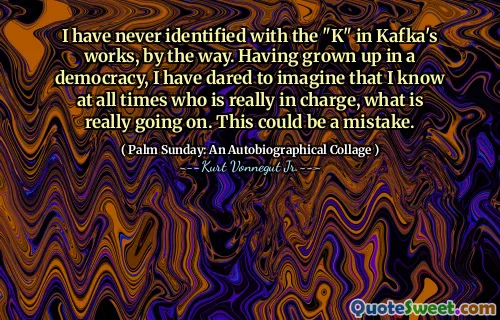Nothing expresses Kafka's innermost sense of self more profoundly than his lapidary definition of writing as a form of prayer: he was a writer. Not a man who wrote, but one to whom writing was the only form of being, the only means of defying death in life.
Franz Kafka's identity is intricately tied to his writing, which he viewed as essential to his existence. Ernst Pawel emphasizes that Kafka didn't merely write; he embodied the act of writing as an integral part of his being. This profound connection highlights how writing served as a sanctuary for Kafka, a way to assert life in the face of mortality.
For Kafka, writing transcended mere expression; it became a vehicle for exploring his innermost thoughts and fears. The comparison to prayer suggests a spiritual dimension to his writing, where he sought meaning and a semblance of immortality through his literary work. This perspective reveals the depth of Kafka's relationship with his craft, marked by a relentless pursuit of understanding and self-definition.
